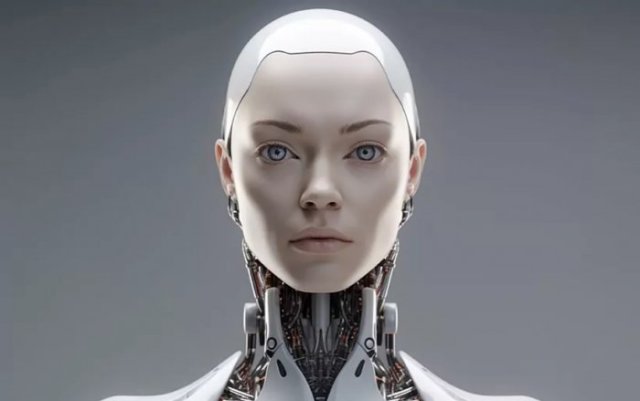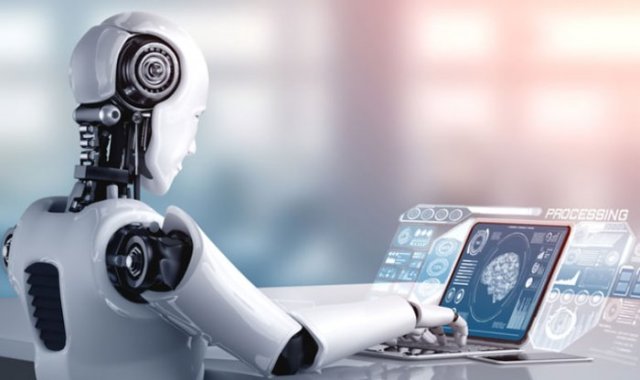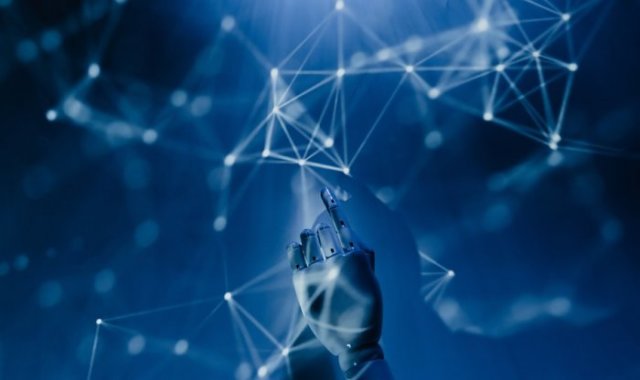
Artificial intelligence
In the modern world, artificial intelligence (AI) is becoming an increasingly popular and in-demand tool. It revolutionizes various spheres of life, the structure of workplaces and affects almost all aspects of our society. But what awaits us in the future when neural networks become even more advanced?
Impact on industry
Automation of production Automation of processes in production is not new. However, with the development of AI, the possibilities become almost limitless. We can expect complete automation of entire factories, where robots with AI will perform all operations, from assembly to quality control. Forecasting and optimization
AI can analyze huge amounts of data much faster than humans, which makes it an excellent tool for forecasting. Industrial enterprises can use AI to optimize their supply chains, predict market trends, or predict equipment maintenance needs.

Artificial intelligence
Impact on society
Education
AI can dramatically change the way we learn. Adaptive educational platforms that adapt to the individual needs and capabilities of the student will become the norm. AI can also help teachers track students' progress and identify weaknesses in their knowledge. Healthcare
Artificial intelligence has the potential to become an invaluable assistant for doctors. From early diagnosis of diseases to the development of new treatment methods, the possibilities of neural networks in medicine seem limitless. Transport
Self-driving cars are likely to become commonplace. AI can improve road safety, optimize routes and make transportation more efficient. Security and Privacy
On the one hand, AI can help in the fight against cybercrime, but on the other hand, it can become a tool for more complex cyber attacks. Data privacy issues become even more relevant when it comes to powerful AI algorithms.
Personalization in retail
Modern neural networks can analyze the shopping habits and preferences of consumers, providing them with personalized recommendations and suggestions. This allows companies to increase sales and improve customer satisfaction.
Content creation
Artificial intelligence is already being used to create music, visual art, and even literary works. Despite the fact that many believe that AI will never have a "human spark", its capabilities in this area continue to improve.
Ethical and social issues
With the development of AI, concerns about its impact on society are also growing. Issues of privacy, information manipulation and job losses due to automation are of concern. As in any other field, a competent and responsible approach is needed here.

Artificial intelligence
Artificial intelligence in Science
AI enables scientists to process huge amounts of data, which is especially important in such fields as genomics, astrophysics and climatology. This can lead to new scientific discoveries and a deeper understanding of the world around us.
Human-AI Collaboration
Instead of replacing humans with machines, the future will probably see a scenario in which humans and AI will work in tandem, complementing each other. For example, in medicine, doctors can use AI for diagnosis, but the final decision on treatment will remain with the person.
Conclusion
The future of artificial intelligence looks very promising. However, it is important to understand and take into account the possible risks associated with its use. Responsible use of AI and attention to ethical issues will allow humanity to benefit the most from this revolutionary technology.
Maxim Sitnikov
